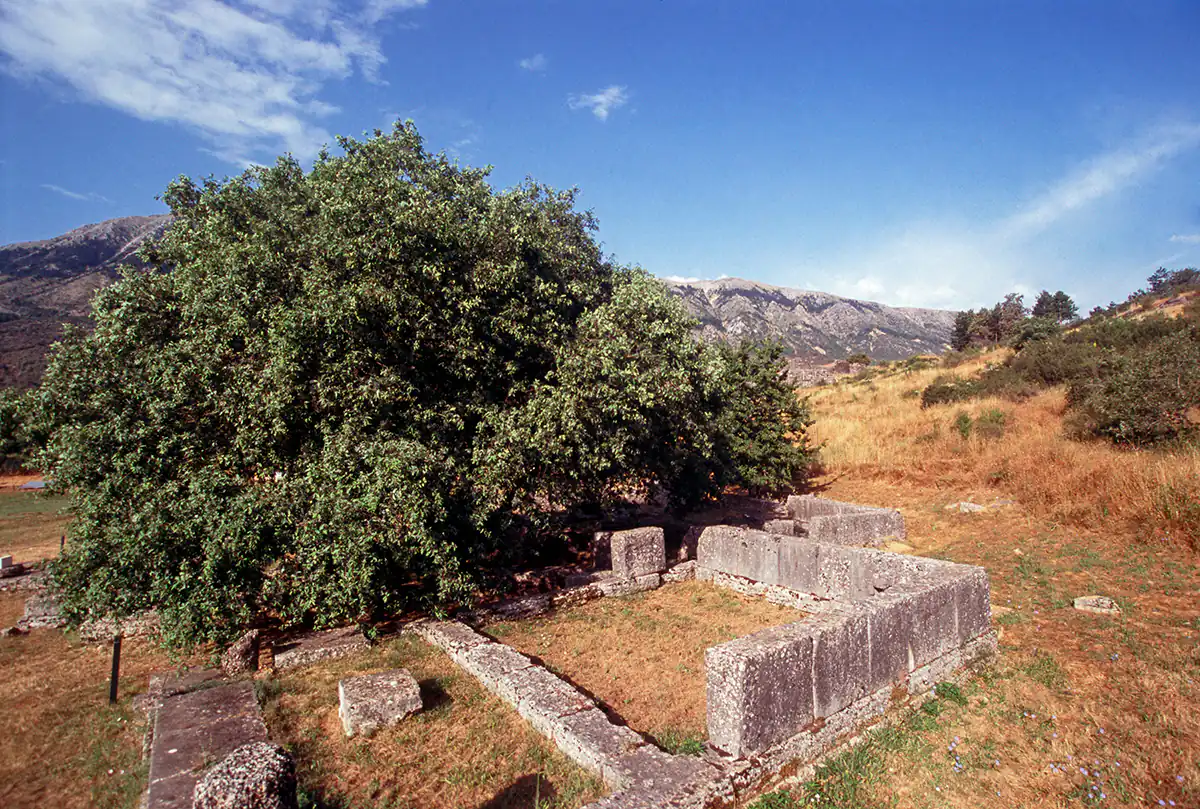Dodona
Dodona, Greece: Whispers of the Divine from Ancient Oaks
Nestled in the remote and verdant valley of Ioannina, in northwestern Greece, lies Dodona, an ancient sanctuary shrouded in an aura of mystique and reverence. Long before the rise of Delphi, Dodona served as one of the most significant and oldest oracular sites in the ancient Greek world. Its fame rested not on grand temples or imposing statues, but on the whispers of the divine carried on the rustling leaves of a sacred oak tree, the dwelling place of Zeus and his consort Dione. Dodona was a place where mortals sought guidance from the gods, a conduit between the earthly realm and the celestial sphere.
Unlike other oracles where priests or priestesses interpreted ambiguous pronouncements, the oracle of Dodona communicated through the very elements of nature. The rustling leaves of the sacred oak, the flight of doves nesting in its branches, and the sounds emanating from bronze cauldrons suspended in the air – all these were interpreted as messages from Zeus himself. The priests, known as Selloi or Helloi, who lived barefoot on the ground and slept there, were the interpreters of these natural signs. Their connection to the earth and their intimate understanding of the oak's language allowed them to translate the divine will for those who sought it.
The sacred oak stood at the heart of the sanctuary, a symbol of Zeus's power and wisdom. It was believed to be the first oak tree planted by the primordial deity Pelasgus, further emphasizing the site's ancient origins and its connection to the very roots of Greek mythology. Around the oak grew a sacred grove, a place of profound natural beauty and spiritual significance. The rustling leaves of the oak, whispering secrets in the wind, created an atmosphere of awe and reverence, enhancing the sense of divine presence. This direct connection to nature was a defining characteristic of Dodona, setting it apart from other oracular sites.<
The questions posed to the oracle were often inscribed on lead tablets, many of which have been unearthed by archaeologists. These tablets provide invaluable insights into the concerns and anxieties of the ancient Greeks. They reveal a wide range of inquiries, from personal matters like marriage and health to public decisions concerning war and politics. The answers, delivered through the rustling leaves and the other natural signs, were often cryptic and required interpretation, highlighting the wisdom and experience of the Selloi priests.
Dodona's influence extended throughout the ancient Greek world. It was consulted by kings and commoners alike, and its pronouncements carried considerable weight. The oracle played a crucial role in shaping the religious and political landscape of ancient Greece. While Delphi eventually eclipsed Dodona in terms of fame and influence, the oak oracle retained its unique character and its connection to the primordial forces of nature.
The sanctuary at Dodona also included other structures besides the sacred grove. A theater, built in the 3rd century BC, testifies to the importance of dramatic performances and festivals in the religious life of the sanctuary. Other buildings, including temples dedicated to Zeus and Dione, as well as a prytaneum (a communal hearth), have been discovered, revealing the scope and complexity of the site.
In conclusion, Dodona stands as a testament to the ancient Greeks' deep connection to nature and their belief in the power of divine communication. The rustling leaves of the sacred oak, the flight of doves, and the sounds of the bronze cauldrons all contributed to the unique oracular experience at Dodona. It was a place where the whispers of the divine could be heard, a sanctuary where mortals sought guidance from the gods through the language of nature itself. Dodona remains a powerful reminder of the enduring human quest for meaning and connection with the sacred, a place where the echoes of ancient wisdom still resonate through the rustling leaves of the ancient oaks.
For information on the oracle site of Dodona:
For additional information on Greek oracle sites, visit our Delphi page.

Martin Gray is a cultural anthropologist, writer and photographer specializing in the study of pilgrimage traditions and sacred sites around the world. During a 40 year period he has visited more than 2000 pilgrimage places in 160 countries. The World Pilgrimage Guide at sacredsites.com is the most comprehensive source of information on this subject.

